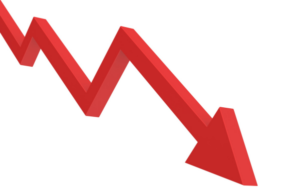
The reported inflation rate is based on the Consumer Price Index (CPI) which includes various items such as food, alcohol, housing, and transport, among others. While many will welcome the news that inflation has returned to the target level of 2%, consumers will still experience increases in the cost of many goods and services as prices continue to rise, albeit more slowly.
May's inflation figure in context
The fall in the price of food and non-alcoholic drinks was the largest contributing factor to the fall in inflation for May. Falls in the price of recreation and culture as well as furniture and household goods all contributed to an overall reduction in inflation this month. Conversely, rising fuel prices meant there was an increase in the cost of transport, compounded by the fall in fuel prices that we experienced at the same time last year.
As the CPI is based on a methodology developed by Eurostat (Statistical Office of the European Union), comparisons can be drawn with other countries. Inflation in the UK for May 2024 is lower than in France (where it's 2.6%), Germany (where it's 2.8%) and the EU as a whole, which reported an inflation figure of 2.7%. Inflation has increased over the last month in many European countries including France and Germany due to the rising price of services.
Inflation predictions for June's figures
Inflation is predicted to remain at around 2% for the next few months, with an increase predicted towards the end of 2024. The lowering of the energy price cap to £1,690 in April this year and a further reduction to £1568 in July is likely to continue to have a positive effect on inflation for the time being. Market experts also predict that inflation will increase again later this year due to expected increases in the price of food and fuel.
The Office for Budgetary Responsibility (OBR) predicts that we will see inflation fall below 2% by the third quarter of 2024. The Bank of England's Monetary Policy Committee will meet again on 20th June to set the Bank of England base rate. The latest inflation figures mean that markets are predicting that the base rate is likely to remain at 5.25% in June.
How will the fall in inflation affect savings rates?
Savings rates are likely to remain unchanged based on this month's inflation figure as it is unlikely to signal a cut to the Bank of England base rate, which currently stands at 5.25%. Some analysts predict that the base rate may not see a cut until August at the earliest with many predicting that it will take until September for the Bank of England to make its first cut since March 2020. If you're looking to make the most of your money before any potential base rate cuts, check out our round-up of the best savings accounts in the UK. There are also several accounts still offering more than 5% interest on your savings.
How will the fall in inflation affect mortgage rates?
The Bank of England is unlikely to cut the base rate of interest in June following this month's inflation figure announcement, especially when you consider that only last month, inflation came in higher than expected, prompting several lenders to hike their mortgage rates. Major players like HSBC, NatWest, and Barclays were among those who introduced mortgage interest rate hikes. We also saw some mortgage lenders shorten the window for product transfers indicating that there is likely to be reduced urgency to secure rates for upcoming mortgage product end dates.
It's therefore unlikely that we will see significant cuts in mortgage interest rates in the next few months. For those looking to buy a home, house prices have risen by approximately 1.1% in the 12 months to April 2024 with the average property in the UK now costing around £281,373.
If you're looking for mortgage deals, check out our mortgage rate comparison tool or speak to a mortgage expert* to get advice tailored to your specific needs and circumstances.
If a link has an * beside it this means that it is an affiliated link. If you go via the link, Money to the Masses may receive a small fee which helps keep Money to the Masses free to use. The following link can be used if you do not wish to help Money to the Masses or take advantage of any exclusive offers - Habito





